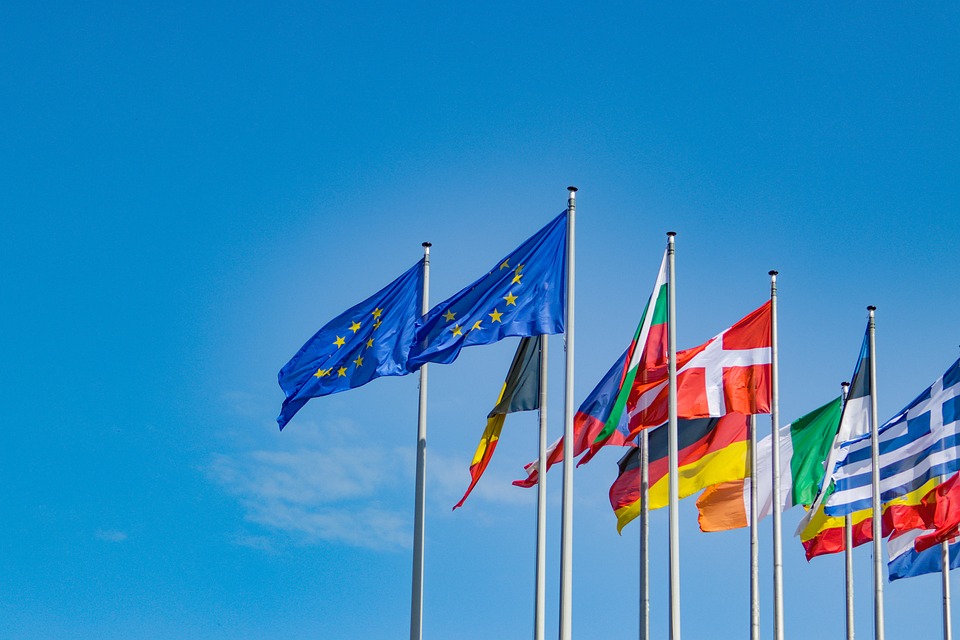The defense ministers of the countries under the European Union were urged this week to coordinate their purchases of weapons. This comes as the West is rushing to restock its supplies that were depleted from its shipments of arms to Ukraine.
The head of the bloc’s diplomatic service security and defense division, Stijn Mols, told the European Parliament committee Wednesday the urgency of replenishing stocks of weapons to restore the readiness of European troops. This follows the rush by Western countries to replenish their stocks of weapons, prompting suppliers to ramp up production to meet demands.
“It is urgent to restore the readiness of our European armed forces and replenish depleted stocks,” said Mols.
As the bloc’s defense ministers are set to meet on November 15, Mols said he hoped they would present substantial proposals for coordinated weapons purchases. Mols said EU countries need air and missile defense, anti-tank and artillery systems, as well as drones. The bloc is looking for around 5-7 “emblematic projects” to coordinate weapons purchases by member countries.
Defense purchases among EU countries are rarely done in a coordinated manner, as countries are eager to support their local industries.
“It is now really the occasion for all of us to set aside these long-standing…national interests,” said Mols.
Meanwhile, the bloc’s regulators said they are considering extending easier state-aid rules due to the ongoing war in Ukraine, allowing governments to support businesses that were affected because of the war until the end of 2023, according to competition chief Margrethe Vestager. The rules were first introduced in March and were revised in May.
The EU’s executive branch is looking to receive feedback from countries on public guarantees that they can provide to energy firms to cover the financial collateral or their trading activities to offset the high market prices and volatility. EU governments are also being asked how the rules could be more flexible to allow them to provide faster and more effective support to companies that are facing high energy bills.
Vestager said the European Commission has so far given the go signal on several billions of euros in state aid.



 Trump Backs Nexstar–Tegna Merger Amid Shifting U.S. Media Landscape
Trump Backs Nexstar–Tegna Merger Amid Shifting U.S. Media Landscape  U.S. Lawmakers to Review Unredacted Jeffrey Epstein DOJ Files Starting Monday
U.S. Lawmakers to Review Unredacted Jeffrey Epstein DOJ Files Starting Monday  South Korea Assures U.S. on Trade Deal Commitments Amid Tariff Concerns
South Korea Assures U.S. on Trade Deal Commitments Amid Tariff Concerns  U.S. to Begin Paying UN Dues as Financial Crisis Spurs Push for Reforms
U.S. to Begin Paying UN Dues as Financial Crisis Spurs Push for Reforms  Netanyahu to Meet Trump in Washington as Iran Nuclear Talks Intensify
Netanyahu to Meet Trump in Washington as Iran Nuclear Talks Intensify  Nighttime Shelling Causes Serious Damage in Russia’s Belgorod Region Near Ukraine Border
Nighttime Shelling Causes Serious Damage in Russia’s Belgorod Region Near Ukraine Border  Trump Allegedly Sought Airport, Penn Station Renaming in Exchange for Hudson River Tunnel Funding
Trump Allegedly Sought Airport, Penn Station Renaming in Exchange for Hudson River Tunnel Funding  Norway Opens Corruption Probe Into Former PM and Nobel Committee Chair Thorbjoern Jagland Over Epstein Links
Norway Opens Corruption Probe Into Former PM and Nobel Committee Chair Thorbjoern Jagland Over Epstein Links  India–U.S. Interim Trade Pact Cuts Auto Tariffs but Leaves Tesla Out
India–U.S. Interim Trade Pact Cuts Auto Tariffs but Leaves Tesla Out  Jack Lang Resigns as Head of Arab World Institute Amid Epstein Controversy
Jack Lang Resigns as Head of Arab World Institute Amid Epstein Controversy  Japan Election 2026: Sanae Takaichi Poised for Landslide Win Despite Record Snowfall
Japan Election 2026: Sanae Takaichi Poised for Landslide Win Despite Record Snowfall  US Pushes Ukraine-Russia Peace Talks Before Summer Amid Escalating Attacks
US Pushes Ukraine-Russia Peace Talks Before Summer Amid Escalating Attacks  Missouri Judge Dismisses Lawsuit Challenging Starbucks’ Diversity and Inclusion Policies
Missouri Judge Dismisses Lawsuit Challenging Starbucks’ Diversity and Inclusion Policies  Trump Says “Very Good Talks” Underway on Russia-Ukraine War as Peace Efforts Continue
Trump Says “Very Good Talks” Underway on Russia-Ukraine War as Peace Efforts Continue  U.S.-India Trade Framework Signals Major Shift in Tariffs, Energy, and Supply Chains
U.S.-India Trade Framework Signals Major Shift in Tariffs, Energy, and Supply Chains  TrumpRx.gov Highlights GLP-1 Drug Discounts but Offers Limited Savings for Most Americans
TrumpRx.gov Highlights GLP-1 Drug Discounts but Offers Limited Savings for Most Americans  U.S. Announces Additional $6 Million in Humanitarian Aid to Cuba Amid Oil Sanctions and Fuel Shortages
U.S. Announces Additional $6 Million in Humanitarian Aid to Cuba Amid Oil Sanctions and Fuel Shortages 































